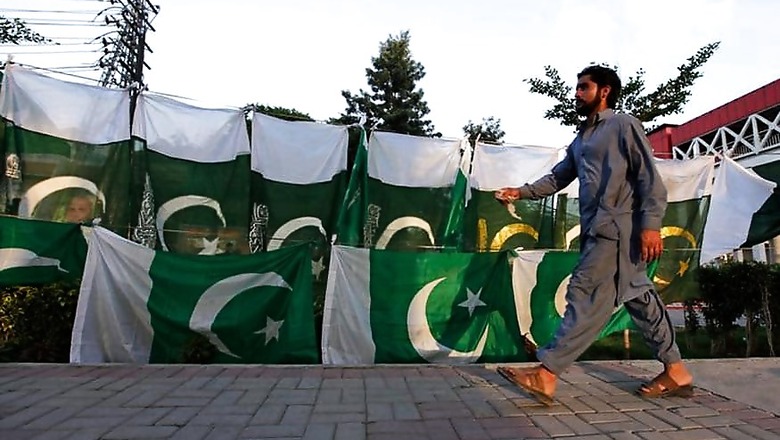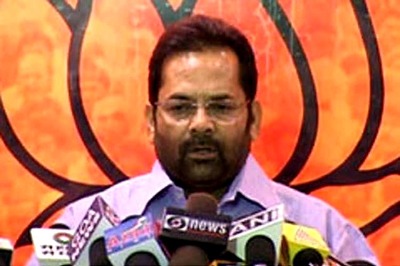
views
The President of the United States of America, in his first tweet of the year, openly lambasted the country’s long-time ally and so-called friend in their “war against terror”, Pakistan, for being deceitful and dishonest in its dealings with the US.
In his characteristic style, Donald Trump did not mince his words while saying his own country has been foolish in giving billions in aid to Pakistan over the past decade and a half.
While the Indian media plays up the statement and the government pats its back in a very ‘we told you so’ fashion, it would be in order to understand where such a strong and unequivocal statement is rooted and what could be the likely implication of such an eventuality to take tangible form.
Pakistan and the United States go back a long way and in the geopolitical world where countries such as the USA cannot afford to choose their allies with their myopic national interests in mind.
Pakistan proved to be the much-needed pawn in the United States’ policy of containment that it had followed in case of the Soviet Union. The obvious partiality that India showed towards the latter served to make the bond between Pakistan and USA much stronger.
While the United States used Pakistan as a strategic base for training and launching unrest in Afghanistan to hurt Soviet interests, Pakistan used the aid from the ‘big brother’ to fructify its policy of “bleed India with a thousand cuts” by successfully fostering separatist movements, first in Punjab and then in Kashmir.
The shift in the scenario, however, occurred with the disintegration of the Soviet Union in the 1990s and the establishment of the fundamentalist Taliban regime in Afghanistan.
Though the United States selfishly and characteristically chose to isolate itself from the smouldering volcano that South Asia had become, it was forced to sit up and take notice when with 9/11, the Frankenstein’s monster that the US had created, turned on its creator.
Since then, Pakistan for the United States ceased to be a pawn to be used in its own interests and became a rather dangerous entity to be kept in good humour.
Pakistan remained the strategic base from which the US had to fight its war against terror in a territory that was totally alien to them and that too against an enemy whose strengths and skills it had no knowledge of.
In essence, the United States was dependent on Pakistan. Pakistan, on the other hand, was a slave to its own internal structural compulsions, epitomised by a deeply feudalistic society rooted in political corruption and military domination, which remained just a step away from being declared a failed state.
With the elimination of Osama bin Laden, the United States slowly began to withdraw from active involvement in Afghanistan, an opportunity the US had long been waiting for.
This also meant that the amount of money that was being poured into Pakistan in the form of aid and collateral for being part of the ‘war against terror’ gradually started to go down. From a sum of more than $2 billion in 2014, the military aid came down to a little more than half a billion dollars in 2017. This squeeze was not without a reason.
While the United States of America, on one hand, realises its vulnerability to global terrorism, on the other hand, it has woken up to the stellar role that Pakistan has to play in the breeding and nurturing of terrorism. It has therefore frequently tried to restrain and warn Pakistan to desist from such aggravating behaviour.
Pakistan, in the meanwhile — used to selling itself for military aid — has turned towards other willing buyers, including Saudi Arabia and China. The fact that Pakistan is a nuclear power and has obtained the technology from China gives ample evidence of the likelihood of its coming closer to China, should the United States withdraw its aid and military favours from Pakistan.
The fact that China willingly shared nuclear technology with a regime as unstable as Pakistan bears testimony to China’s own ambitions to rival the United States as a power of global reckoning.
In the economic sphere, China has already established itself as a world leader and with the tacit support that it offers North Korea in the face of a visibly adverse global opinion; it is no doubt ready to challenge the Anglo-American world at its own game.
No doubt closer ties between Pakistan and China may lead to closer ties between India and the United States, yet it does not augur well for peace and stability in the larger region of South Asia and is certainly not in India’s interest.
At the same time, China must also realise that a state like Pakistan in the long run will only bring misery upon any country or state that chooses to support it, for it is in essence a leech whose survival is contingent upon its ability to drain its host of its blood.
With China having attained the status of a power of global reckoning and India vying for the same, it would do them both well to adopt a long-term perspective and jointly work towards greater peace and stability in Asia.
— Author is a security and foreign affairs analyst. Views are personal.




















Comments
0 comment